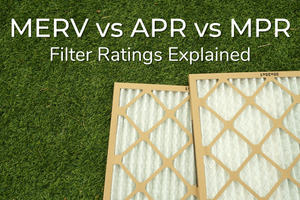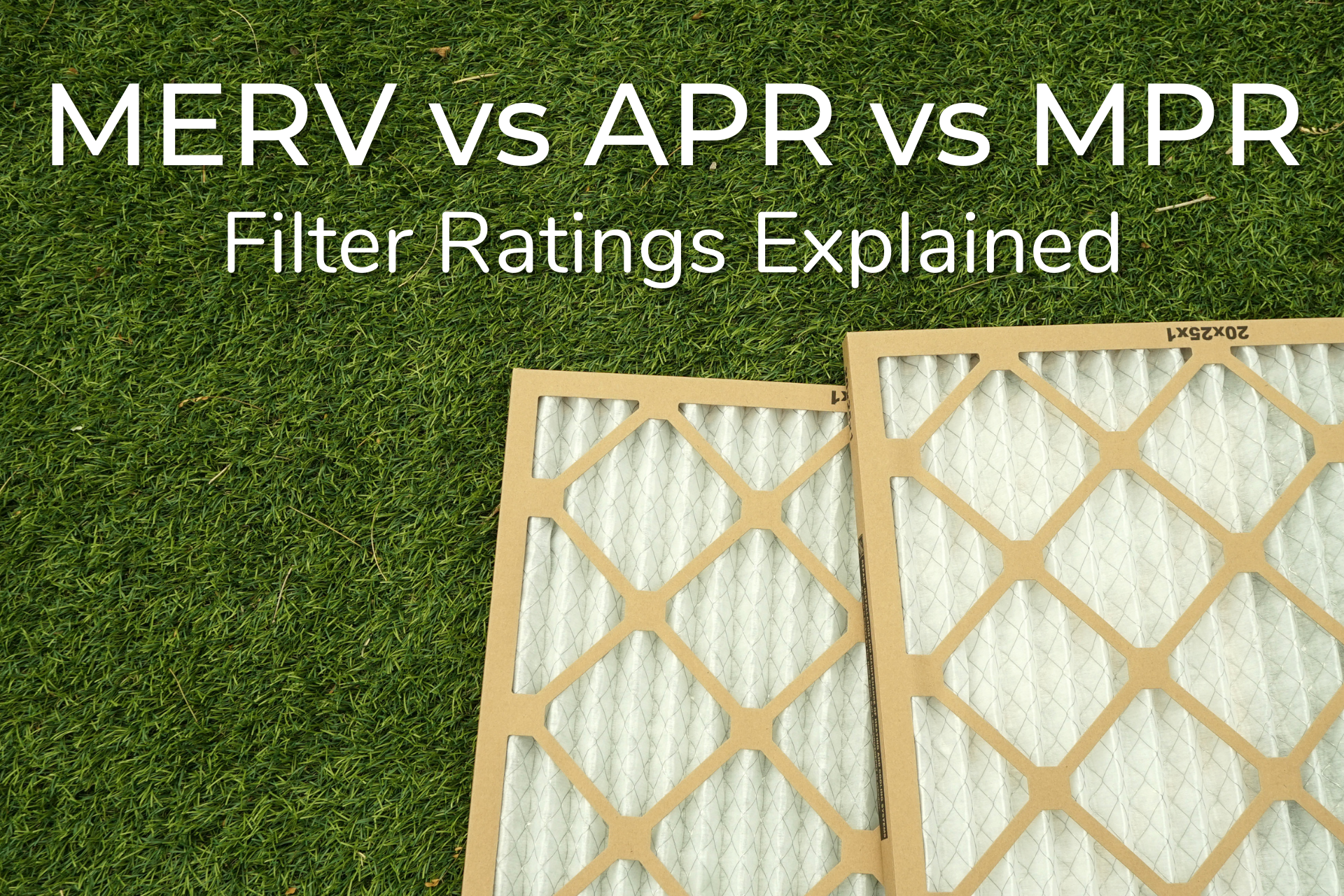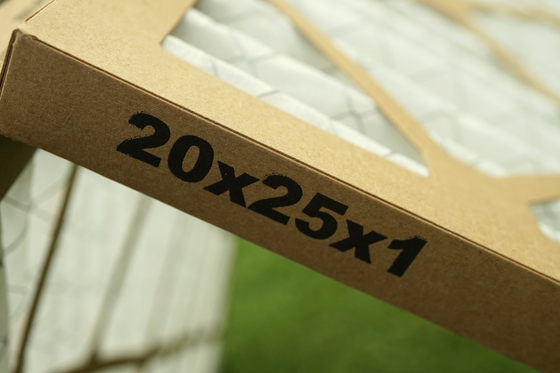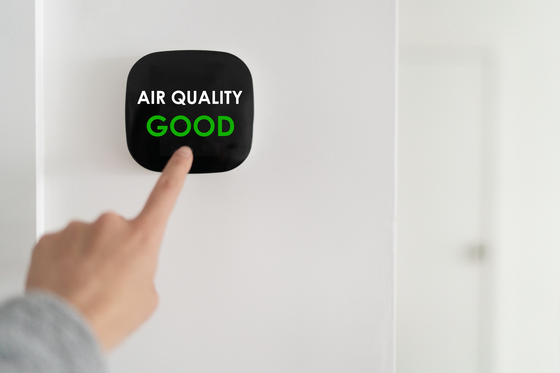MERV vs. APR vs. MPR: Which Air Filter Rating is Best for You?
January 12, 2023

Are you tired of breathing in all sorts of gross stuff floating around in the air? Are you ready to upgrade your air filter game? If so, then you'll want to know all about MERV ratings!
What is a MERV rating, you ask? MERV stands for Minimum Efficiency Reporting Value, and it's a way to measure the effectiveness of air filters. The higher the MERV rating, the more efficient the air filter is at trapping particles.
But what kind of particles are we talking about here? Well, the MERV rating system can capture a wide range of particle sizes, ranging from large dust particles to tiny microbes. The table below shows what each MERV rating can capture:
| MERV Rating |
Particle Size Range |
| 1-4 |
Large dust particles |
| 5-8 |
Midsize particles such as mold spores and pet dander |
| 9-12 |
Smaller particles such as smoke and bacteria |
| 13-16 |
Very small particles such as tobacco smoke and some viruses |
| 17-20 |
Ultrafine particles such as tobacco smoke and some viruses |
As you can see, the higher the MERV rating, the smaller the particles it can capture. So if you're looking to rid your home of pet dander and mold spores, a MERV rating of 5-8 should do the trick. But if you want to take it to the next level and protect against smoke and bacteria, you'll want to go for a MERV rating of 9-12.
But wait, there's more! There are also other rating systems out there, such as APR (Accumulair Performance Ratings) and MPR (Microparticle Performance Rating). So what's the difference between these three?
First, let's talk about APR. APR is a rating system specific to Accumulair filters that measures their effectiveness at capturing small airborne particles. Filters with higher APR ratings are more efficient at capturing small particles. For example, an APR rating of 1950 would be more effective at capturing small particles than an APR rating of 450.
Next up is MPR. This rating system is specific to Filtrete air filters and measures the effectiveness of the filter at trapping small particles such as smoke, bacteria, and viruses. MPR ratings range from 100 to 1500, with higher ratings indicating a more efficient filter at trapping small particles. For example, an MPR rating of 600 would be more effective at trapping small particles than an MPR rating of 300.
It's important to note that MPR and APR ratings only apply to Filtrete and Accumulair air filters, so if you're using a different brand, these ratings won't be relevant.
Check out this guide to compare APR and MPR ratings to MERV ratings:
| APR |
MPR |
MERV |
| 650 |
600 |
8 |
| 1550 |
1000 |
11 |
| --- |
1500 |
12 |
| --- |
1900 |
12 |
| 1950 |
2200 |
13 |
It's important to note that APR and MPR ratings are specific to certain brands, so they are not directly comparable to each other or to MERV ratings. However, the above table can be used as a reference to compare the effectiveness of filters across different brands. For example, if you have an APR 650 filter and want to know how it compares to an MPR 1500 filter from a different brand, you can refer to the table to see that they both have a MERV rating of 11. This means that both filters should be effective at trapping a similar range of particle sizes.
Still have questions about MERV ratings? Here's a quick FAQ to help clear things up:
Q: Can a high MERV rating make my air conditioning unit work harder?
A: It's possible. A higher MERV rating means a more efficient filter, which can potentially put more strain on your air conditioning unit. However, this will depend on the specifics of your unit and the filter you're using. It's always a good idea to consult with a professional or refer to the manufacturer's guidelines to determine the appropriate MERV rating for your unit.
Q: Can I use a higher MERV rating than what's recommended for my unit?
A: It's not recommended to use a higher MERV rating than what's recommended for your unit, as it could put too much strain on the system and potentially cause damage. It's important to follow the manufacturer's guidelines to ensure the optimal performance and longevity of your air conditioning unit.
Q: How often should I replace my air filter?
A: The frequency at which you should replace your air filter will depend on the specific filter you're using and the conditions in your home. For example, if you have pets or live in a dusty area, you may need to replace your filter more often. As a general rule of thumb, it's a good idea to check your filter every month and replace it when it appears dirty or clogged.
Q: Can I save money by using a lower MERV rating?
A: It's possible that using a lower MERV rating could save you money, as a more efficient filter may put more strain on your air conditioning unit and use more energy. However, it's important to consider the potential trade-off in air quality. A lower MERV rating may not be as effective at trapping smaller particles, which could result in a decline in the overall air quality in your home.
We hope this blog has helped clear up any confusion you may have had about MERV ratings. Remember, when it comes to improving the air quality in your home, it's important to consider your specific needs and the manufacturer's guidelines to ensure you're using the right filter for the job. Happy breathing!
Leave a comment
Comments will be approved before showing up.





